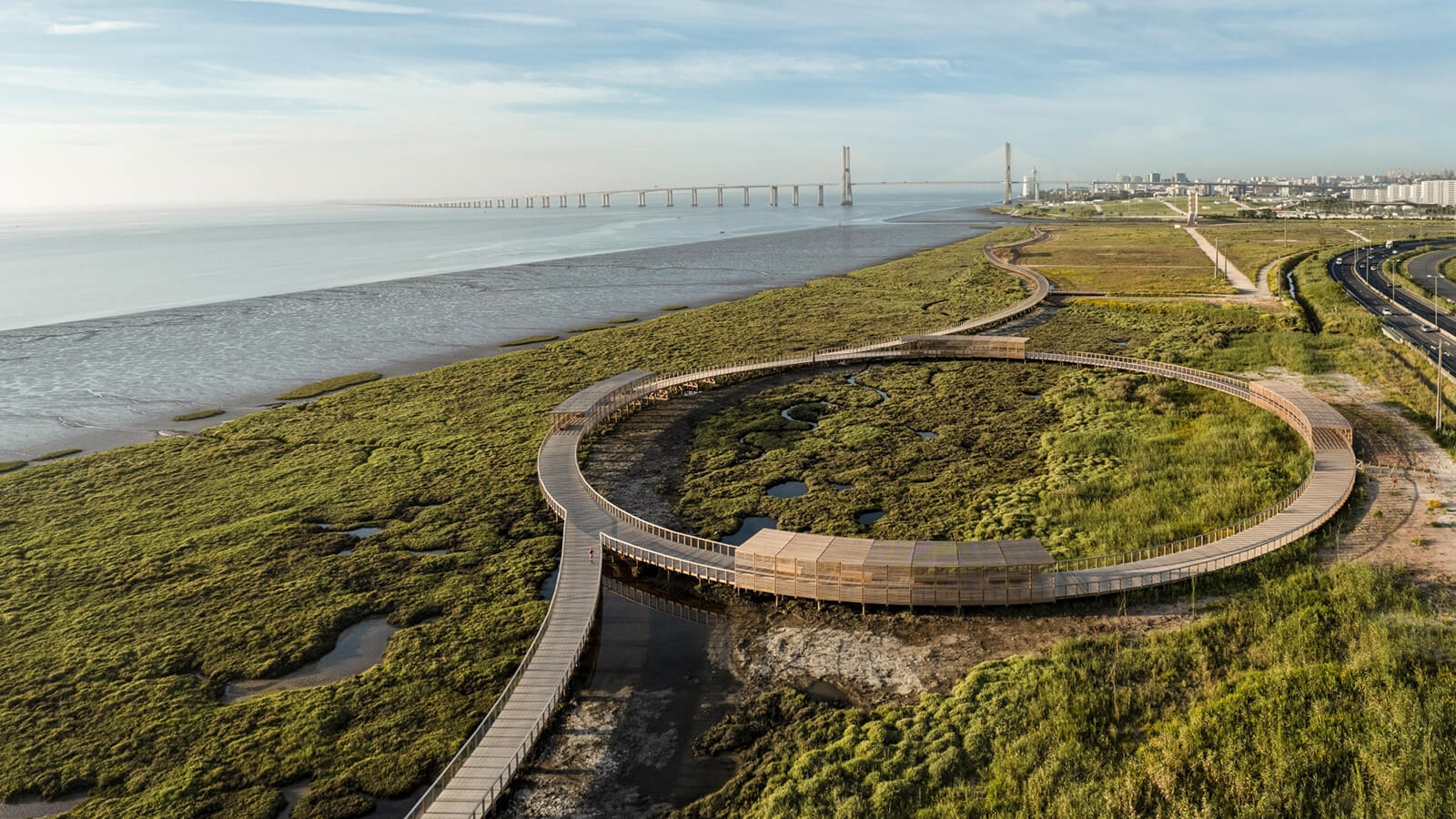
When designed well, mobility infrastructure can bring much more value to a community than just the quickest path from point A to point B. Case in point: On the outskirts of Lisbon, Topiaris Landscape Architecture is rethinking this paradigm, with a new riverfront circulation route that embraces the idea of transitory space.
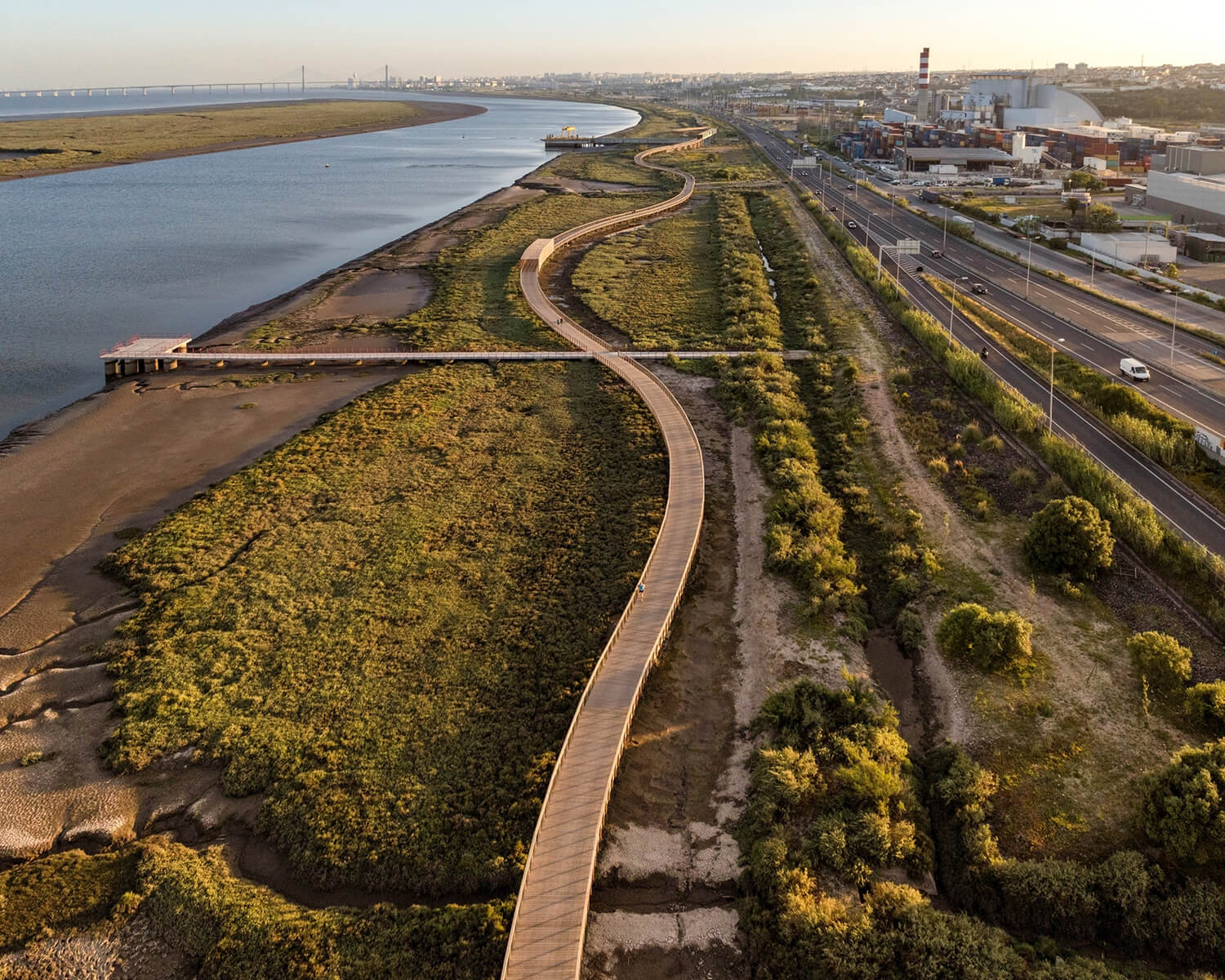
The brief was to create a continuous passage along the Tagus River that would bridge the existing pedestrian and cycling networks of Lisbon and the suburb of Vila Franca de Xira, while also strengthening the relationship between the town of Loures and the river, which was previously isolated due to the roads and railway infrastructure between them. The solution, conceived by Topiaris, has taken shape as a 6.2-kilometre boardwalk that hovers on stilts above an 85-hectare park.
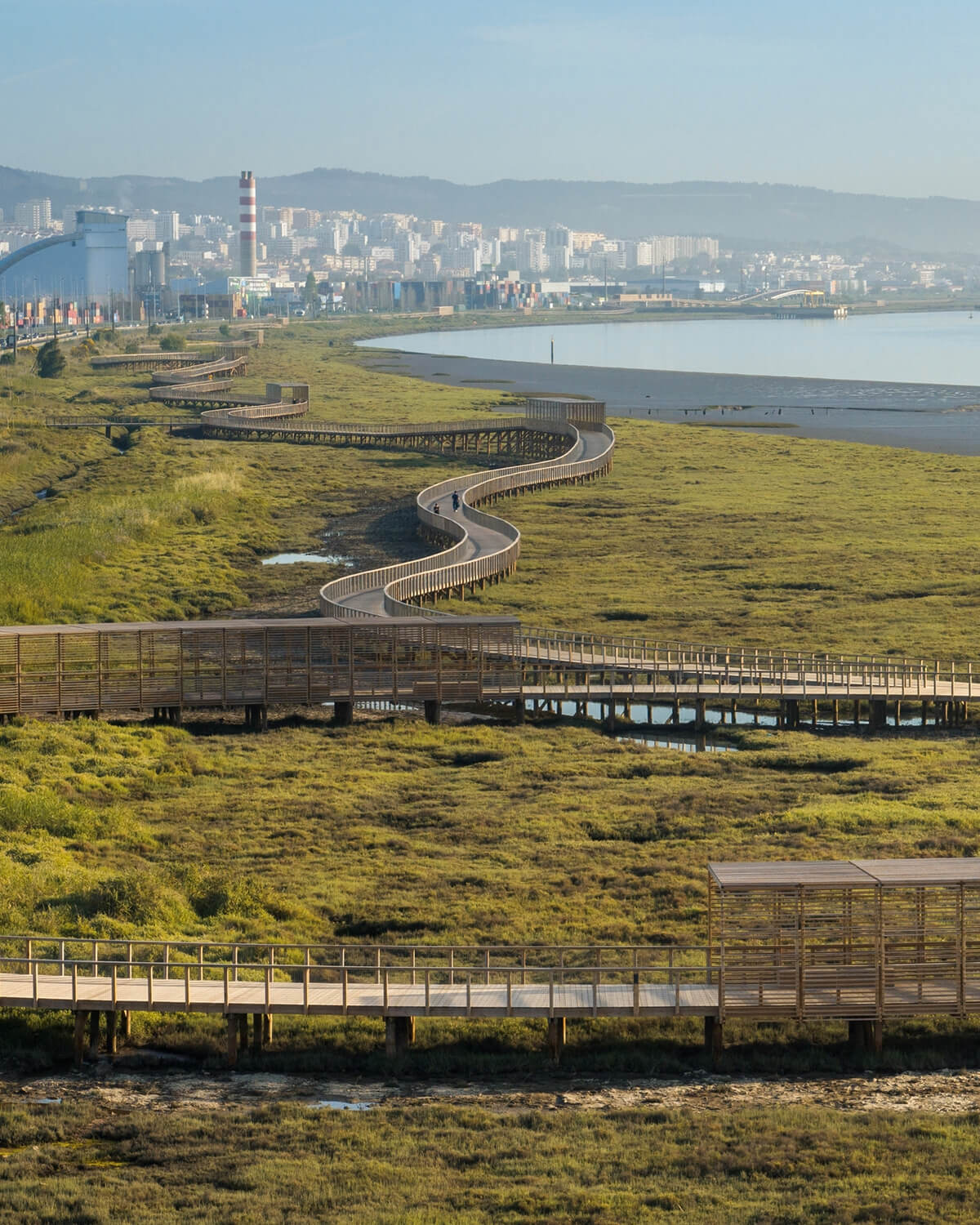
Nestled into the landscape of mudflats, salt marshes and native reed beds, which are home to a diverse array of flora and fauna, you’d hardly know you were mere minutes from densely populated neighbourhoods. The new pathway, comprised of wood, sits lightly on the land, its neutral tones blending seamlessly into its surroundings.
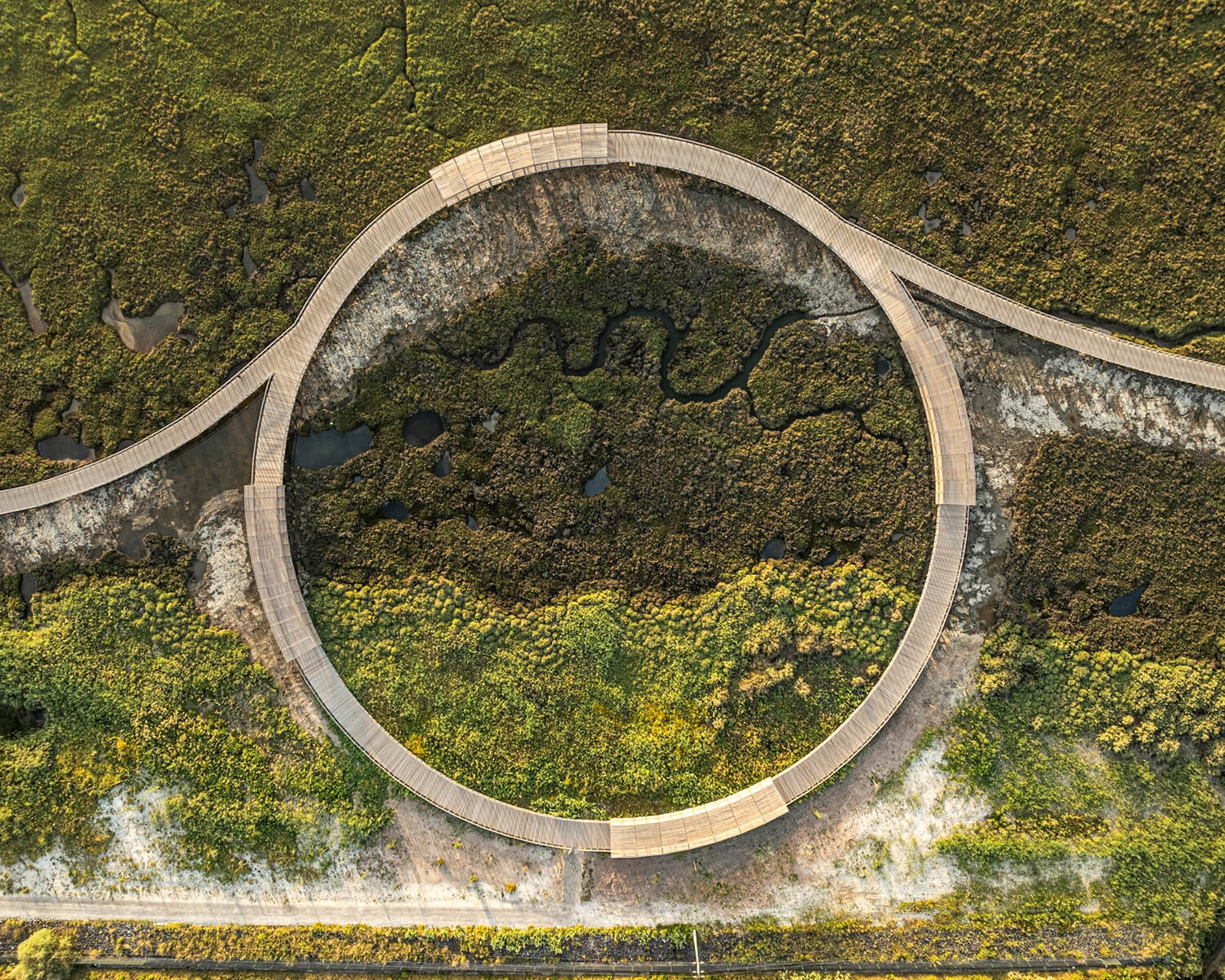
Surrounded by all this natural beauty, the journey itself becomes the destination. To encourage visitors to slow down and revel in the multisensory experience, the designers created a circuitous route rather than a linear one, drawing inspiration from the drainage lines that snake through the marshland. As visitors traverse the winding path, they can observe the habitats from different perspectives, along the way encountering places to rest and reflect — like fishing piers and shaded tunnels — where the din of the running river mingles with the chirps of the local bird population to make a natural sound bath.
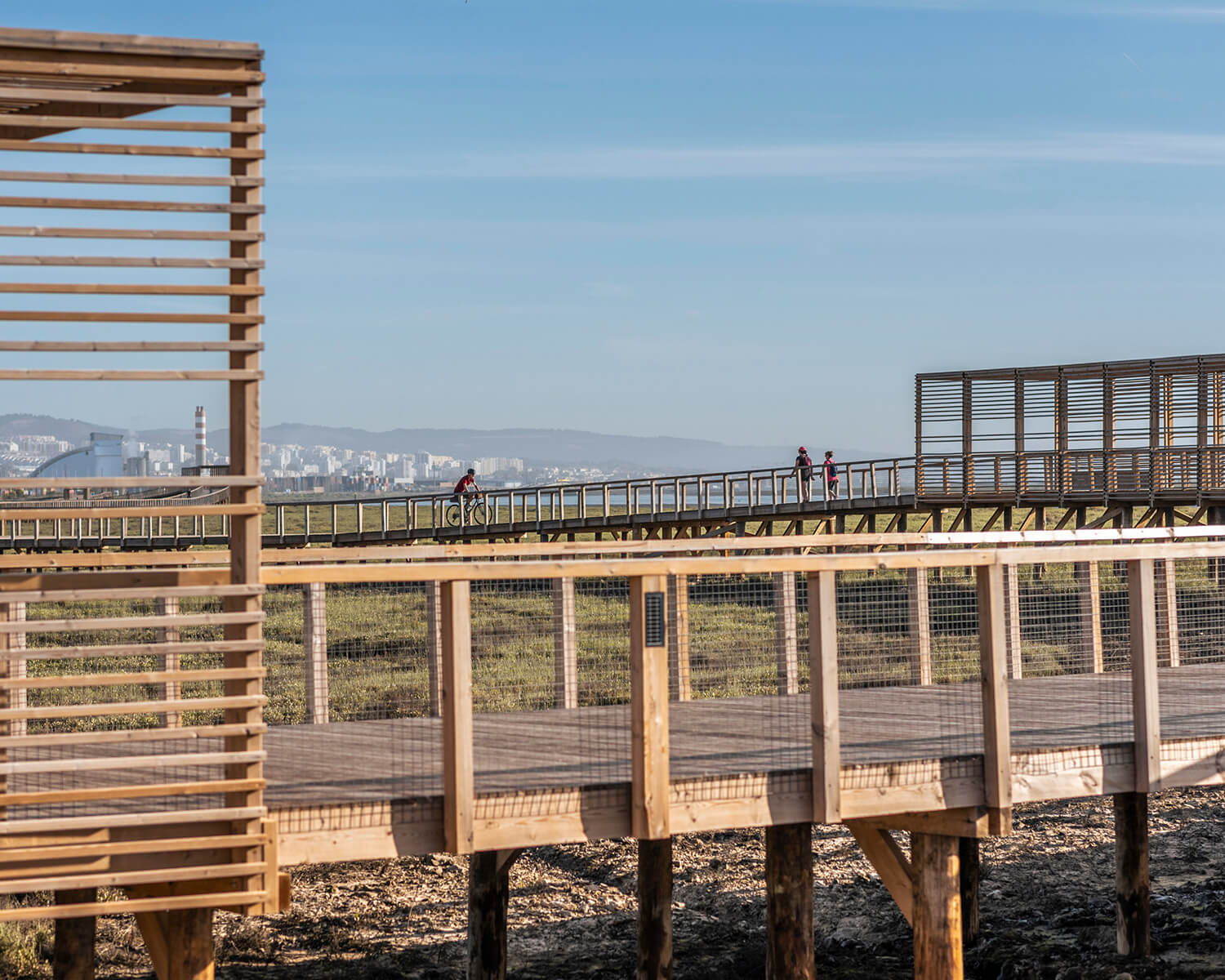
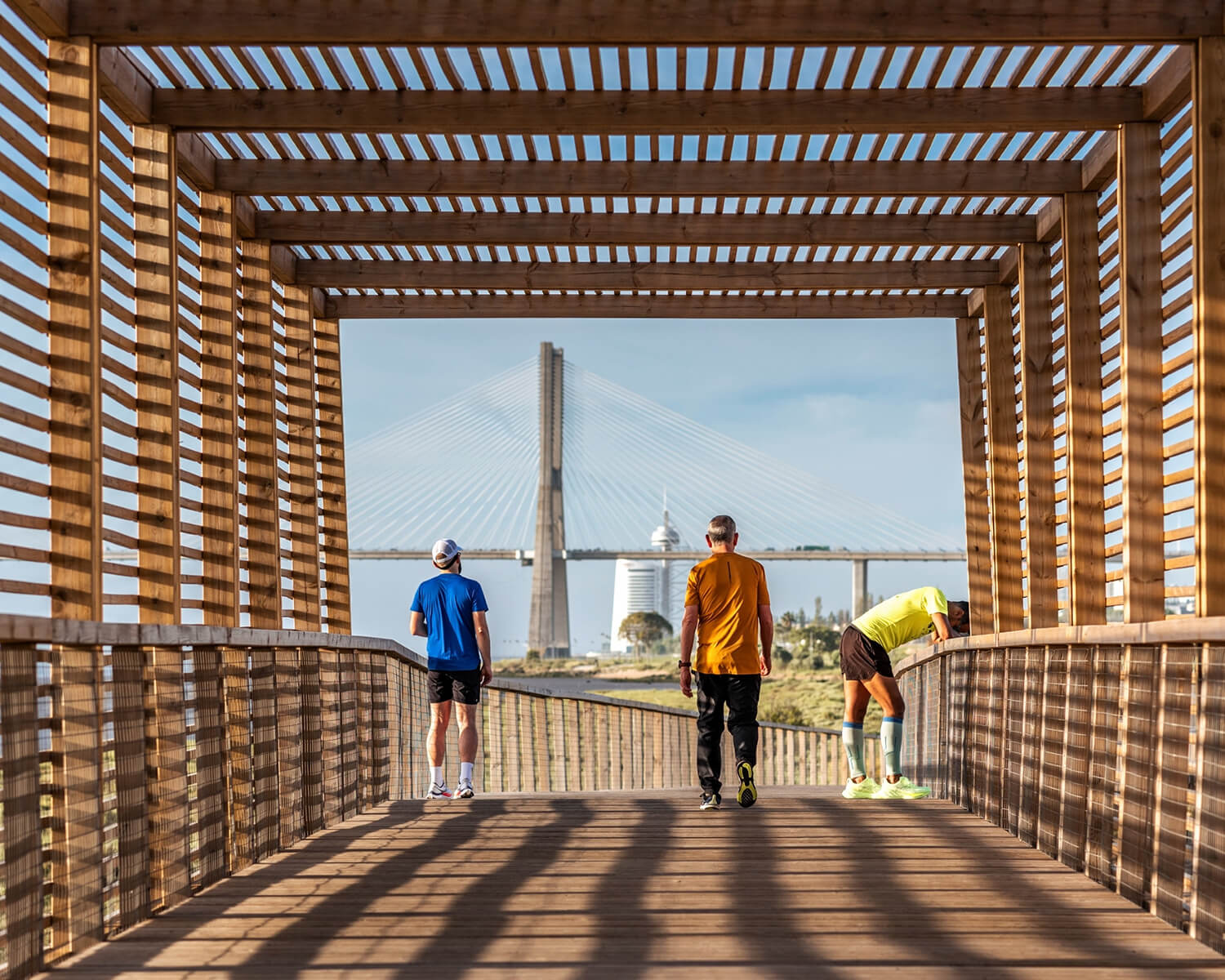
An important new addition to the local transportation corridor, the trail helps to reduce CO2 emissions by providing an alternative to car travel that is not just adequate, but beautiful, providing valuable public spaces for the community to enjoy. The resulting project is equal parts infrastructure, recreation and education. Considered a platform for research, its proximity to the landscape helps to engage the public in conversations about the importance of protecting estuarine ecosystems, biodiversity conservation and responsible ocean management.

Without disrupting the ecosystem that was already there, Topiaris Landscape Architecture has designed an intervention that fosters connection — between people, cities and the land.
A Meandering Wooden Boardwalk Meets the Lisbon Marshes
On the banks of Portugal’s Tagus River, a cycling and pedestrian route encourages its users to take in their wetland surroundings.
